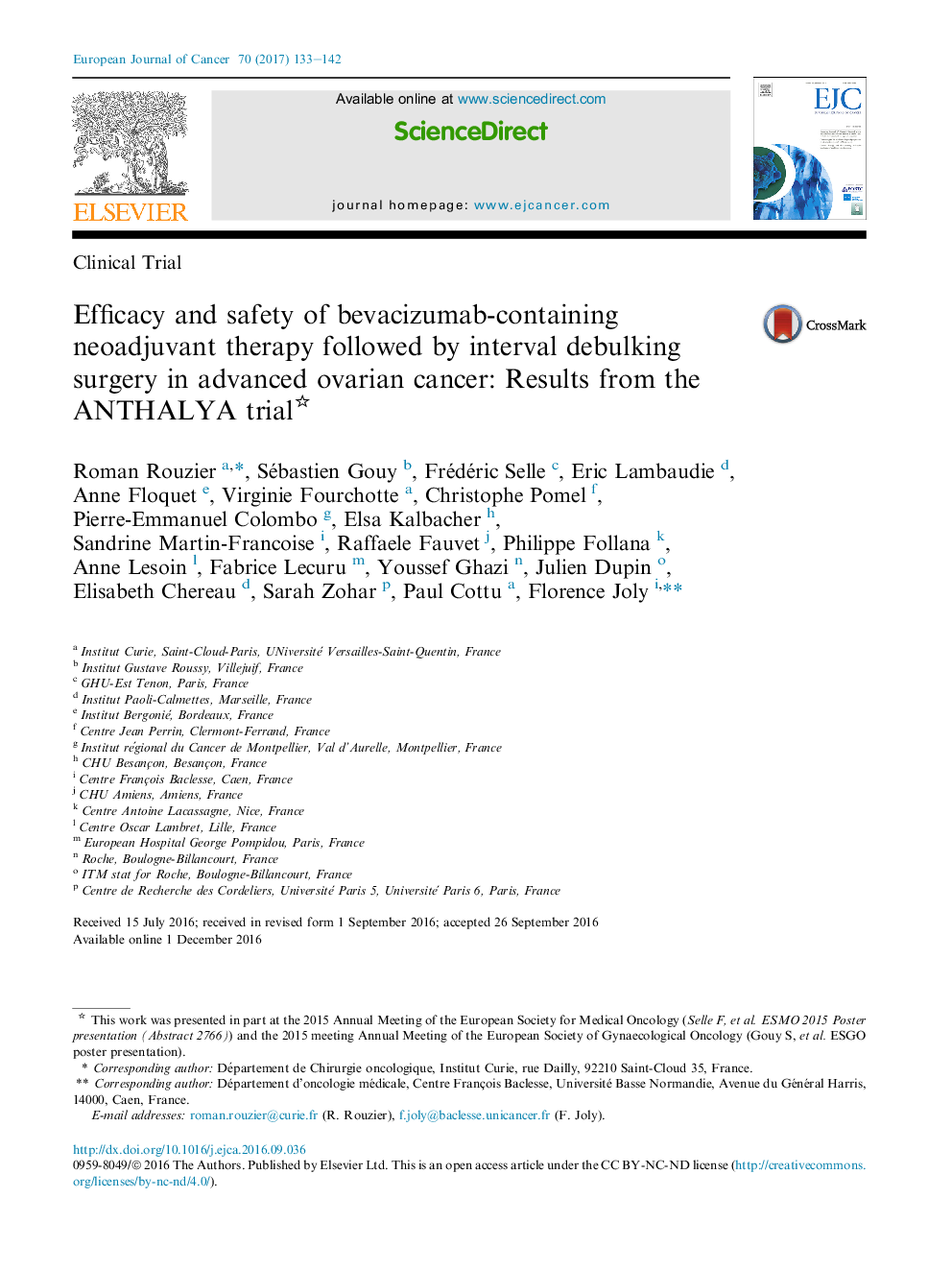| کد مقاله | کد نشریه | سال انتشار | مقاله انگلیسی | نسخه تمام متن |
|---|---|---|---|---|
| 5526818 | 1547063 | 2017 | 10 صفحه PDF | دانلود رایگان |

- We present findings from the ANTHALYA study in women with advanced ovarian cancer.
- The complete resection rate at interval debulking surgery was examined.
- Bevacizumab-containing neoadjuvant therapy achieved 58.6% complete resection rate at interval debulking surgery.
- The incidence of perioperative complications with bevacizumab was acceptable.
- The role of bevacizumab in this setting should be further investigated.
AimTo investigate whether adding bevacizumab to neoadjuvant carboplatin-paclitaxel (CP) helps achieve optimal debulking, measured by complete resection rate (CRR) at interval debulking surgery (IDS), in patients with initially unresectable International Federation of Gynecology and Obstetrics stage IIIC/IV ovarian, tubal or peritoneal adenocarcinoma.MethodsMulticentre, open-label, non-comparative phase II study. Ninety-five patients randomised (2:1) to receive four cycles of neoadjuvant CP ±3 concomitant cycles of bevacizumab 15 mg/kg (BCP) followed by IDS. Primary objective is to evaluate the CRR at IDS in the BCP group (reference CRR rate defined as 45% CRR). A stopping rule based on bevacizumab-related adverse events (AEs) of special interest was implemented.ResultsIn the BCP group (N = 58), IDS was performed in 40 (69%) patients, of whom 85% had a complete resection. The CRR of this group was therefore 58.6% (34 patients), statistically over pre-defined 45%. The CRR in the CP group was 51.4%: 22 (60%) patients underwent IDS (85% had a complete resection). Grade â¥3 adverse events occurred in 62% of the BCP-treated patients and 63% of the CP-treated patients: mainly blood and lymphatic, gastrointestinal and vascular disorders, without more toxicity with BCP. Postoperative complications (mainly wound, infectious and gastrointestinal complications) occurred in 28% and 36% of the patients, respectively. The pre-specified safety stopping rule was not reached.ConclusionThe primary objective was met as the CRR with BCP was significantly higher than the reference rate. Bevacizumab may be safely added to a preoperative program in patients deemed non-optimally resectable, whatever the final surgical decision. Bevacizumab's role in this setting should be further investigated.
Journal: European Journal of Cancer - Volume 70, January 2017, Pages 133-142